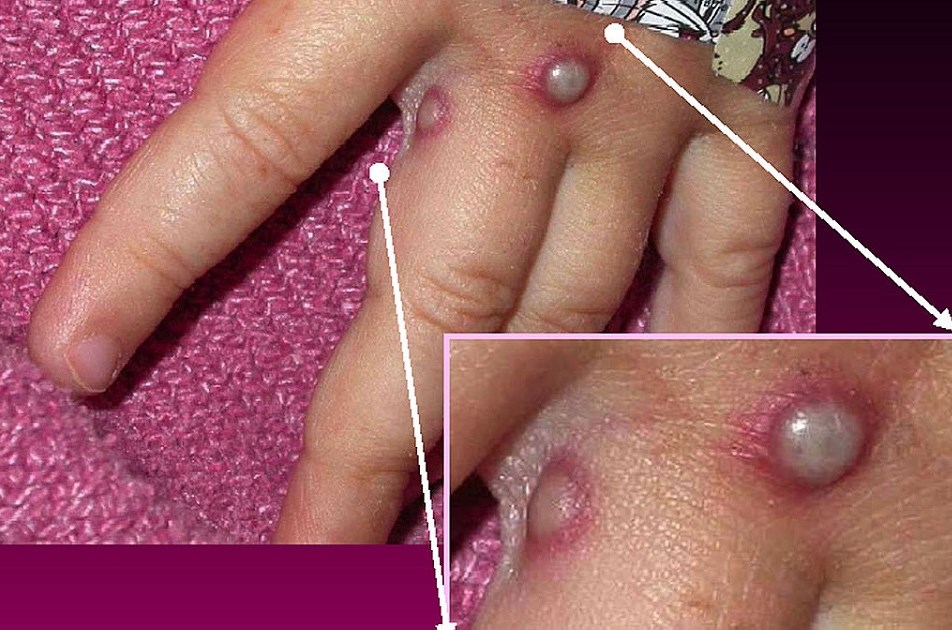NORTHWESTERN ONTARIO – Recently, the World Health Organization declared monkeypox a global health emergency, and just like COVID-19, Ontario isn’t immune.
Over the last couple of weeks, reports of monkeypox are rising in Ontario. The majority of cases are down south in larger metropolitan cities like Toronto. So far, there are no cases of monkeypox in the Northwest region.
Nevertheless, the Northwest Health Unit isn’t taking a chance on this new health threat and they are advising people travelling around the summer to be cautious when visiting areas with cases.
Since Monkeypox is transmitted through skin-to-skin contact, sexually active people should use extreme caution when selecting partners where there are cases of monkeypox being reported. Avoid sharing clothing, bedding, towels, cups, or utensils.
The most common symptoms of Monkeypox include a rash with blisters, fever, headache/muscle aches, tiredness, and swollen lymph nodes. If you are experiencing any of these symptoms, then you should mask up and contact your health care service provider immediately.
“It is important that anyone who thinks they may have monkeypox connects with a health care provider right away; this disease can be controlled when care is given early,” says Dr. Kit Young Hoon, Medical Officer of Health at NWHU.
It should be noted that the majority of current cases are among gay males, however, monkeypox is not limited to men who have intimate relationships with other men. The most commonly reported risk factor is people who have sexual contact with multiple partners.
However, and most importantly, Monkeypox is not a sexually transmitted infection, it is a human contact infection, therefore, all people are potentially at risk.
Because most of the 250 cases of monkeypox are spreading largely between gay men, Jason Veltri, president of the Rainbow Collective of Thunder Bay, is asking the federal government to take extra measures to protect the 2SLGBTQIA+ communities in all areas of Canada by pre-emptively supplying Health Care facilities with a monkeypox vaccine.
“I am calling on Dr. DeMille to take an active role in supporting the 2SLGBTQIA+ communities in the TBDHU catchment area and I am seeking a pro-active approach to ensuring the virus doesn’t make its way to the Thunder Bay District,” commented Veltri. “We have learnt so much from the COVID-19 pandemic, let’s use those tools and immediately begin vaccinating the highest risk communities from Monkeypox.”
In addition to the Rainbow Collectives’ stance on pro-actively ensuring the 2SLGBTQIA+ communities have access to monkeypox vaccination in a safe, judgement-free environment, NDP 2SLGBTQ+ Issues critic Kristyn Wong-Tam is asking the provincial government to take the extra step to avoid another global pandemic.
“Monkeypox could not be happening at a worse time for my constituents,” said Wong-Tam. “Church and Wellesley Village was at the epicentre of the HIV/AIDS pandemic and saw immense damage to main street businesses throughout the COVID-19 pandemic.”
The Official Opposition is fighting for 10 permanent paid sick days, plus an additional 14 days in the case that people contract infectious diseases like monkeypox.
“Bars, clubs, bathhouses and restaurants are still struggling to stay afloat after years of COVID-19. The last thing local small businesses need is another pandemic,” said Wong-Tam. “In refusing, again, to provide adequate and permanent paid sick days to Ontarians in the face of the growing public health emergency of monkeypox, Ford is failing to protect people’s health.”
For the time being, NWHU will continue to monitor the latest number of cases and inform the public if the spread of monkeypox begins to surge in the region. NWHU has sent resources about the virus to health care providers and partners, including a handout for patients and clients who may be more likely to be at risk for monkeypox.
